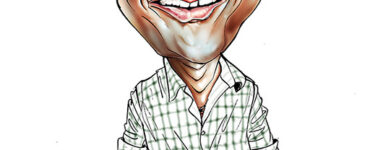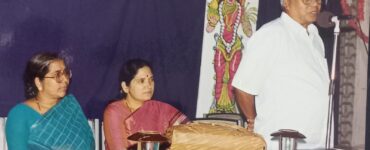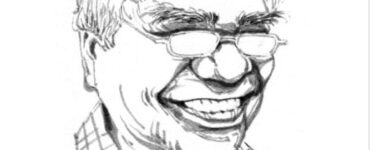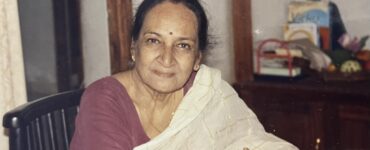 Reading harlot Pekins Gillman’s short story “The Yellow Wall paper” with my students in the physical space of the classroom I was able to direct their attention to the damp marks on the wall asking them to see if they can locate figures much like what the protagonist in the story does. We get to talk about how reading and writing has been helping some of us to deal with the situation they have all been through in the last 21 months. Reading is something that kept me going through the past many months. And one cannot but thank dear friends for coming up with book recommendations. The book that I write about in this month’s column is one such recommendation.
Reading harlot Pekins Gillman’s short story “The Yellow Wall paper” with my students in the physical space of the classroom I was able to direct their attention to the damp marks on the wall asking them to see if they can locate figures much like what the protagonist in the story does. We get to talk about how reading and writing has been helping some of us to deal with the situation they have all been through in the last 21 months. Reading is something that kept me going through the past many months. And one cannot but thank dear friends for coming up with book recommendations. The book that I write about in this month’s column is one such recommendation.
Without a Country by Ayse Kulin chronicles the story of a German family that moves to Turkey to escape Hitler’s policies. Dr. Gerhard Schliemann, his wife Elsa and their children Suzi and Peter are leading a comfortable life in Frankfurt, the year is 1933. As news of the rounding up of Jews by the Nazis begins to pour in, the family flees to Switzerland first and then to Istanbul where Gerhard begins to work at a university. Welcomed by most Turks, Gerhard and other Jewish scientists, who come to Turkey in search of work and a new home, do face prejudice. The family works at getting settled in the new country that is now their home.
Some of the shortcomings were understandable. After all, Turkey was a poor country recovering from years of war and upheaval. But something else was upsetting the German hospital administrators and professors: Turks resented them.
In spite of it, the Schliemanns do well till a family crisis threatens their lives. The novel tells the story of this family right up to 2016 with many generations and brings in issues of cultural assimilation, migration and the challenges of assimilation as well, of the Jewish diaspora, the association with the history of the Jews and their many movements, persecutions and resettling in new lands is clear.
It is Gerhard’s wife Elsa who continues to hold on to her German identity even after living in Turkey for quite some years.
The year Suzi turned eighteen she had decided to decide between being German or Turkish. . . .
Elsa urged her children to reclaim their citizenship, but Gerhard did not say anything. His mother and sister had died in a German camp. He would let his children decide for themselves. . . . Suzi’s heart told her she was Turkish. When anyone asked her why she had chosen Turkish citizenship, she liked to joke, “It would be such a pain to write out Susy Esther Miriam Schliemann’ on official forms. From now on, I’m just plain ‘Suzi Siliman.’”
As the novel moves ahead to the later generations the idea of a German identity recedes and events in Turkish history – the death of Ataturk, military coups, political unrest- become centrestage. The city of Istanbul figures distinctly with the sights and sounds of the cityscape featuring not just as a backdrop but almost as a character in the novel. There are times when one feels too much of events and details coming in.
Gerhard’s son, Peter, moves away to the United States initially to study at Berkeley and then applying for an American citizenship. The novel moves on to focus on Suzi’s, her marriage to Demir, her children and her life. Sude, her daughter is the third generation that the novel focusses on –
Sude’s first coup was on May 27, 1960. She had been living in Ankara with her family for eight months and was about to turn four. Those were the days when the Menderes government was regularly broadcasting the names of everyone they claimed was joining their grand “National Front” of supporters.
The wide time frame that the novel encapsulates leads, at times, to a weakening of the plot that seems to lose momentum. However, the interweaving of this kind of migration that the novels refers to, of the trials and tribulations, of the pain and trauma that is so much a part of Gerhard’s generation, of the trying to fit in and yet standing out, of the holding on to their last vestiges of their identity in a new locale, of the history of Turkey that now becomes an intrinsic part of the lives of this family and the generations to come, are nevertheless an interesting read. Moving into the 21st century, the scars do remain for some members of this family. Without a Country speaks of hate, of displacement, of loss and longing as it narrates the stories of generations of the family as they work hard to carve an identity for themselves, differently for each generation as times differ and the world order keeps changing.
*









Add comment